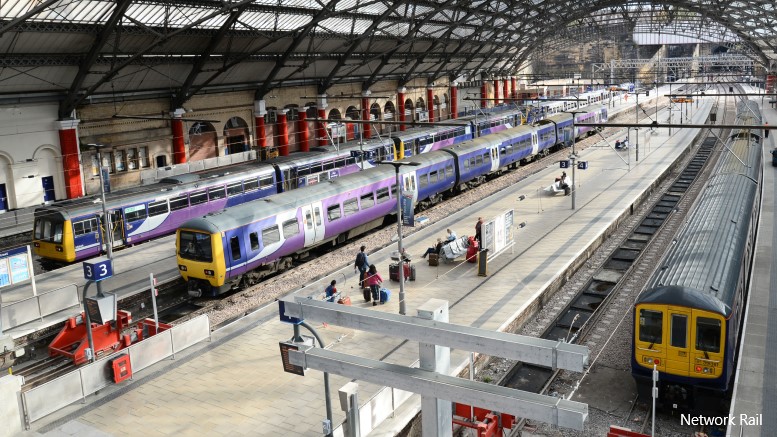
After 24 years, the government has announced the end of rail franchising as the long-awaited Williams Report, still not seen in public, is acted upon.
This first step towards bringing Britain’s fragmented rail network back together, creating a simpler and more effective structure, will take shape over the coming months. The first stage is moving operators onto transitional contracts to prepare the ground for the new railway.
As COVID-19 hit, franchising arrangements were replaced by Emergency Measures Agreements (EMAs). These suspended the normal financial mechanisms of franchise agreements, transferring all revenue and cost risk to the government. Operators continued to run day-to-day services for a small, pre-determined management fee. These agreements ran for six months from 23 March 2020.
Now, from 21 September 2020, franchising and the EMAs are replaced by more demanding Emergency Recovery Management Agreements (ERMAs). These address the continuing impact of the pandemic on the railway and deliver on a government commitment to replace the current franchising system.
These management agreements have tougher performance targets and lower management fees. The new contracts allow the Department for Transport to make an early start on key reforms, including requiring operators to improve co-ordination with each other and driving down the railways’ excessive capital costs.
Management fees will now be a maximum of 1.5% of the cost base of the franchise before the pandemic began. The ERMAs are a transitional stage to the new system, the biggest change to the railways in a quarter of a century.
Under current public health guidance, the intention is also for operators to run an almost a full service, to ensure there is space to help passengers travel safely.
ERMAs pave the way for wider rail industry reform that prioritises the passenger. In 2018 Keith Williams, the chairman of Royal Mail, was asked to review the railways after a chaotic timetable change and the failure of some franchises.
This announcement, which has his full support, is the prelude to a White Paper which will respond to his recommendations. The White Paper will be published when the course of the pandemic becomes clearer.

Secretary of State for Transport.
The Transport Secretary, Grant Shapps, said: “The model of privatisation adopted 25 years ago has seen significant rises in passenger numbers, but this pandemic has proven that it is no longer working.
“Our new deal for rail demands more for passengers. It will simplify people’s journeys, ending the uncertainty and confusion about whether you are using the right ticket or the right train company.
“It will keep the best elements of the private sector, including competition and investment, that have helped to drive growth – but deliver strategic direction, leadership and accountability.
“Passengers will have reliable, safe services on a network totally built around them. It is time to get Britain back on track.”
Until passenger numbers return, significant taxpayer support will still be needed, including under the new transitional contracts. But the government believes that reforms will enable substantial medium and longer-term savings for taxpayers.

Keith Williams, chair of the Williams Review, said: “These new agreements represent the end of the complicated franchising system, demand more from the expertise and skills of the private sector, and ensure passengers return to a more punctual and co-ordinated railway.
“I am ensuring the recommendations I propose are fit for a post-COVID world, but these contracts kickstart a process of reform that will ensure our railways are entirely focused on the passenger, with a simpler, more effective system that works in their best interest.”
The rail industry has welcomed government’s ongoing support to keep railway running for passengers and also, interestingly, the end of the franchise system.

Paul Plummer, chief executive of the Rail Delivery Group, commented: “We welcome the ongoing support to keep trains running for passengers and the government’s confirmation of an end to the franchise system, which we have long been calling for.
“These transitional contracts should be a stepping-stone to a better railway. This needs to harness the experience, innovation and investment private sector operators bring, with local train companies taking the decisions that affect their passengers. It should be overseen by a new guiding mind for the whole industry and underpinned by a simpler to use fares system.
“A renewed and reinvigorated partnership between the public and private sectors will be the best way to improve services and help regrow the market for train travel which is good for economic recovery and the public finances. Combined with the measures the industry is taking to keep trains clean, this announcement means people can continue to travel with confidence.”

Speaking on behalf of passengers, Anthony Smith, chief executive of the independent watchdog Transport Focus, said: “Passengers will be reassured to hear that there is an agreement to keep the trains running for the foreseeable future.
“A stable, reliable railway is key to getting Britain moving again and helping rebuild the economy. The industry must continue to focus on maintaining rigorous cleaning regimes and good performance so that existing and returning passengers can travel with confidence.
“We know that lockdown has radically changed people’s travel patterns. Government and train companies must now also work together to offer what passengers are keen to see and provide tickets that fit the way we live and travel now such as flexible season tickets and better value for money fares across the board.”


1 Trackback / Pingback